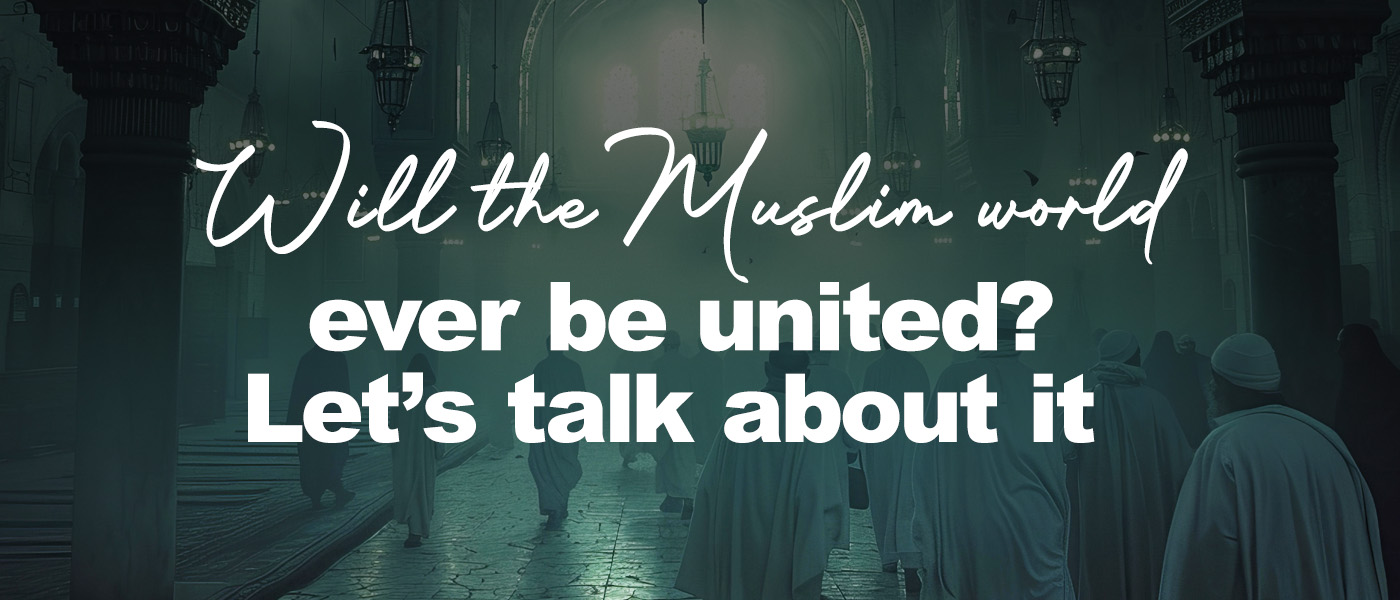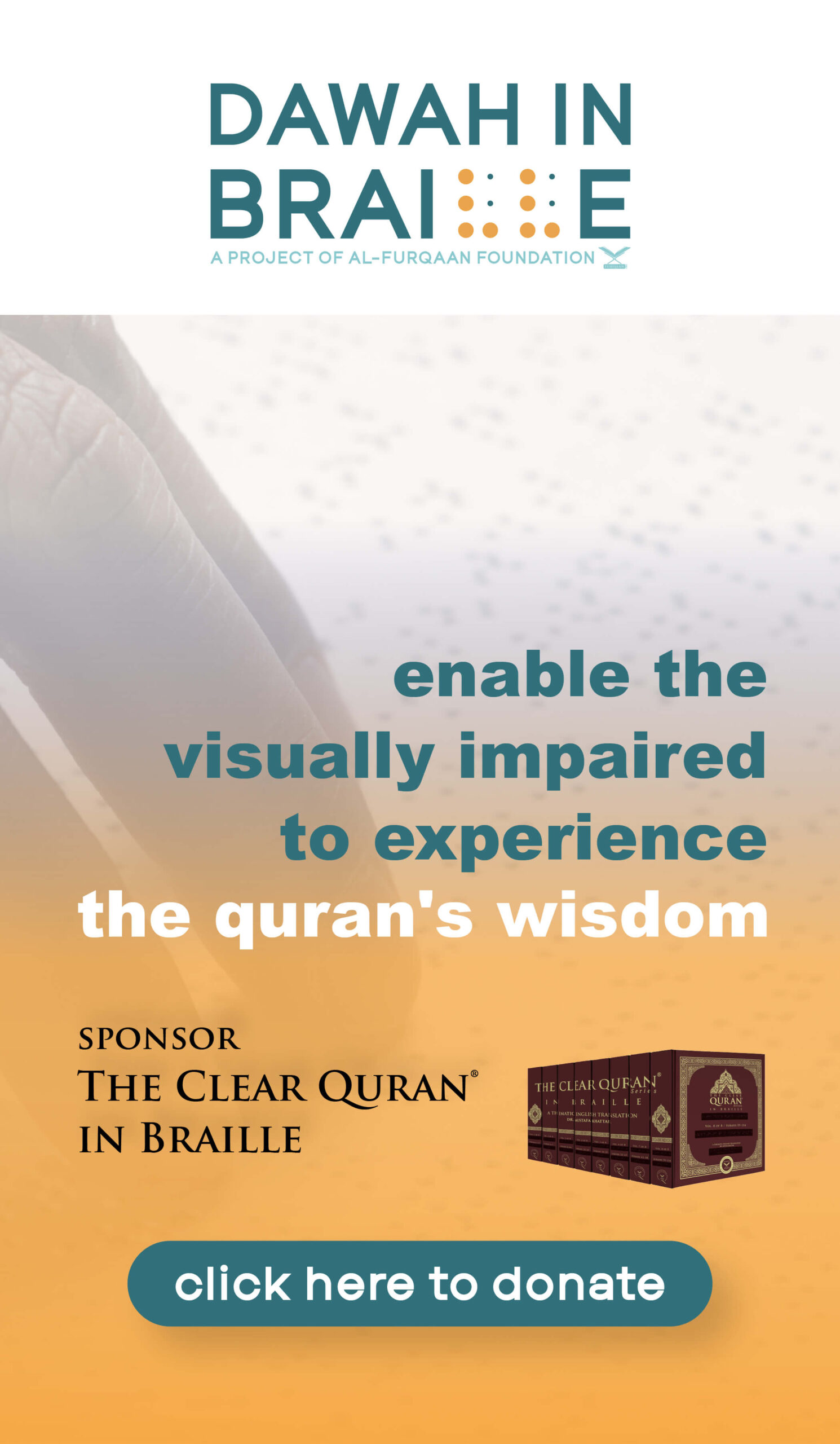When the emigrants arrived in Madinah – dust on their clothes, hope in their hearts – the Prophet (SAW) paired strangers as brothers. Unity wasn’t just preached; it was practiced. It lived beneath shared roofs, around shared meals, and through shared prayers. Later, Allah (SWT) made this principle explicit:

And again:

But Madinah had already learned this lesson in practice.
Unity didn’t mean uniformity. It meant justice, mercy, and good character. It meant guiding the tongue, reconciling quickly, assuming the best of others, and standing together even when opinions differed. The Prophet (SAW) said believers are like one building – each brick supporting the next. We should be a community that stays upright when its people lean toward one another. That’s how Islamic unity lives: turning neighbors into kin, and disagreements into opportunities for grace.
How did the Prophet (SAW) establish unity during his leadership?
The Prophet (SAW) didn’t build unity with speeches alone. He (SAW) built it through worship, justice, and gentle discipline. In Madinah, migrants arrived with little more than faith. He (SAW) instituted mu’akhah – pairing families so wealth, shelter, and dignity could be shared. The meeting between Sa’d ibn Rabi and Abd al-Rahman ibn Awf is a timeless example of generosity met with gratitude and self-reliance. No exploitation. No humiliation. Just hearts learning to stand side-by-side.
He also oversaw the Charter of Madinah, which recognized Muslims as a minority while honoring covenants with others. Unity here meant cooperation, not conformity.
In The Quran, Allah (SWT) calls believers “brothers”, and that comes with obligations. When siblings fight, they reconcile. They protect each other’s honor and share burdens. The Prophet (SAW) said believers are like parts of a building, interlaced like fingers (Sahih al-Bukhari), and like one body – if one limb suffers, the whole body feels it (Sahih Muslim). These aren’t poetic metaphors. They’re diagnostic tools. If we feel nothing for another Muslim’s pain, our hearts are ill.
What’s preventing unity?
Unity has enemies. One is arrogance. Scholars have always differed on legal details, weighing texts and contexts differently. But they still prayed behind one another, exchanged knowledge, and kept their words disciplined. Allah (SWT) warns:

A strong Ummah isn’t one without differences – it’s one that manages them with knowledge, patience, and good manners. That’s why the Prophet (SAW) said:
“Shall I not tell you what is better than fasting, prayer, and charity? Reconciling people…” (Sahih At-Tirmidhi)
Another enemy is the tongue. A sharp phrase can tear what took years to weave. Surah Al-Hujurat outlines social rules to protect unity: no mockery, no hurtful nicknames, no suspicion, no spying, no backbiting. Elsewhere, Allah (SWT) says:

The Prophet (SAW) summarized it:
“The Muslim is the one from whose tongue and hand people are safe.” (Sahih al-Bukhari)
Today, the “hand” includes the keyboard. The public square includes timelines and comment sections. A believer reads before forwarding, verifies before accusing, and prefers to correct in private. These aren’t minor courtesies – they’re safeguards for the unity we ask Allah (SWT) to bless.
Unity in light of The Quran
Unity has divine roots. Allah (SWT) reminds us:

Money can arrange meetings. Only mercy can write affection.
Tawheed isn’t just belief – it’s a purifier of motives. Unity collapses when we seek victory for a faction over the pleasure of Allah (SWT). It strengthens when we choose patience, ask Allah (SWT) to cleanse our hearts, and make du’a for one another – even in disagreement.
The Prophet (SAW) would pray:
“O Allah, bring our hearts together, reconcile between us, and guide us to the paths of peace.” (Musnad Ahmad)
These words are not just beautiful – they’re a program. Bring hearts together by truth. Reconcile by fairness. Walk paths that lead away from injury and toward safety.
Unity is not a cover for wrongdoing. Allah (SWT) commands:

When harm appears, it must be addressed with knowledge and proportion. Allah (SWT) says:

And:

Truth without mercy becomes a weapon. Mercy without truth becomes flattery. The Prophetic way is to remove harm, preserve the person, and leave the door of repentance wide open.
Is unity possible for today’s Ummah?
So what does this mean for us?
It means the most powerful project for unity begins in small spaces:
- A home where prayer is established and harshness is kept out
- A mosque that teaches the Quran and Prophetic manners as a shared language
- A community that serves the poor and refugees shoulder-to-shoulder
Standing in rows for prayer – rich and poor, Arab and non-Arab, Black and White – reminds us five times a day what hierarchy Allah (SWT) recognizes: nearness to Him. Ramadan and Hajj extend this schooling, dissolving status and synchronizing our days with worship, not argument.
We will always differ. That’s part of life. But we can differ like students of the same teacher, not rivals for a stage. When we hear a view we don’t hold, we begin with good suspicion: that our fellow believer is following what they believe to be evidence. If advice is needed, we offer it as sincere, private, and gentle nasihah. If disagreement persists, we keep justice. We don’t inflate minor points into measures of faith. We don’t turn debates into character assassinations. We keep the Friday line unbroken and the greeting of peace on our tongues.
A rumor can be a sin. A reconciliation can be worship.
Unity also asks us to honor cultural differences while keeping a single compass for values. In The Quran, Allah (SWT) tells us:

Dress, food, and language can vary. Honesty, modesty, and mercy should not.
A masjid that allows lawful cultural expression while teaching a common ethic becomes a home for many families. It’s hard to fight someone beside whom you’ve cooked, studied, prayed, and served.
Finally, unity is kept by leaders and laypeople together. Those who speak from the minbar and those who speak from screens carry trust. They can inflame or calm, divide or heal. A wise leader avoids naming and shaming. A wise audience avoids demanding it. Both prefer clear principles to personal feuds. Both know when to say Allahu a‘lam – Allah (SWT) knows best – and step back from what they do not know well.
If we take Allah’s (SWT) command seriously, as we should, –

– then unity is not a luxury. It is a divine imperative and a path to mercy.
Unity begins with worship and truth. It grows through patience and good speech. It reveals itself in fairness, service, and the quiet dignity of those who choose character over conflict. When Muslims live this way, they resemble the building the Prophet (SAW) described – each brick fortifying the next. And when one part is in pain, the rest do not debate the diagnosis while the limb bleeds. They bind the wound.
May Allah (SWT) gather us upon His Book and the Sunnah of His Messenger (SAW). May He (SWT) purify our intentions, protect our tongues, and make us keys to reconciliation – not division. May He (SWT) write for this Ummah affection, justice, and steadfastness. And may our unity stand as a witness to His guidance.
Ameen.



